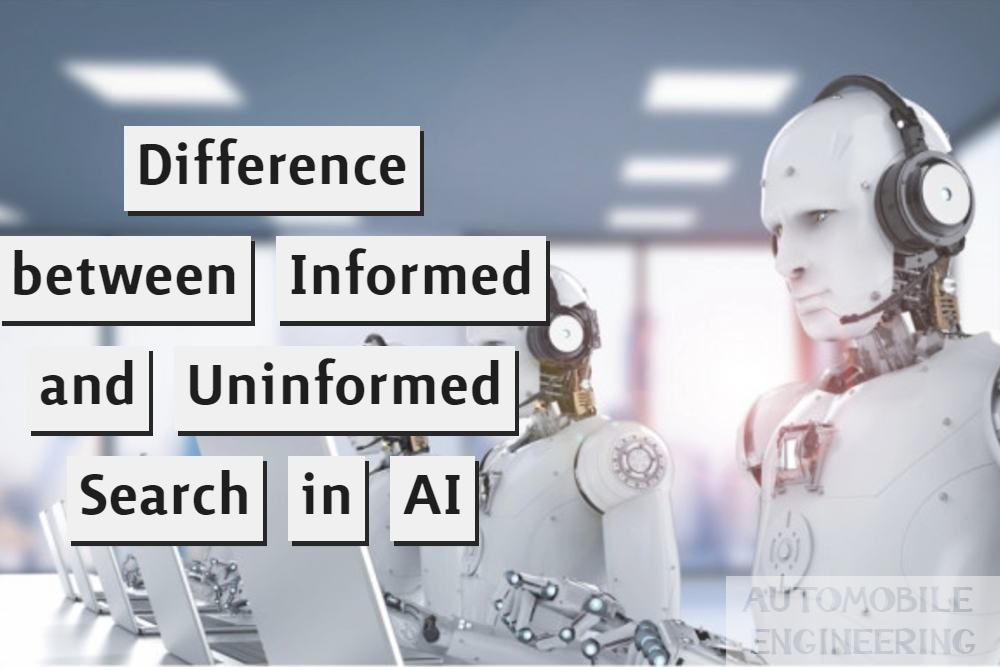Informed Search: Informed Search algorithms have information on the goal state which helps in more efficient searching. This information is obtained by a function that estimates how close a state is to the goal state.
Example: Greedy Search and Graph Search
Uninformed Search: Uninformed search algorithms have no additional information on the goal node other than the one provided in the problem definition. The plans to reach the goal state from the start state differ only by the order and length of actions.
Examples: Depth First Search and Breadth-First Search
Informed Search vs. Uninformed Search:
| Informed SearchUninformed Search It uses knowledge for the searching process.It doesn’t use knowledge for searching process.It finds solution more quickly.It finds solution slow as compared to informed search.It may or may not be complete.It is always complete.Cost is low.Cost is high.It consumes less time.It consumes moderate time.It provides the direction regarding the solution.No suggestion is given regarding the solution in it.It is less lengthy while implementation.It is more lengthy while implementation.Greedy Search, A* Search, Graph SearchDepth First Search, Breadth First Search |


